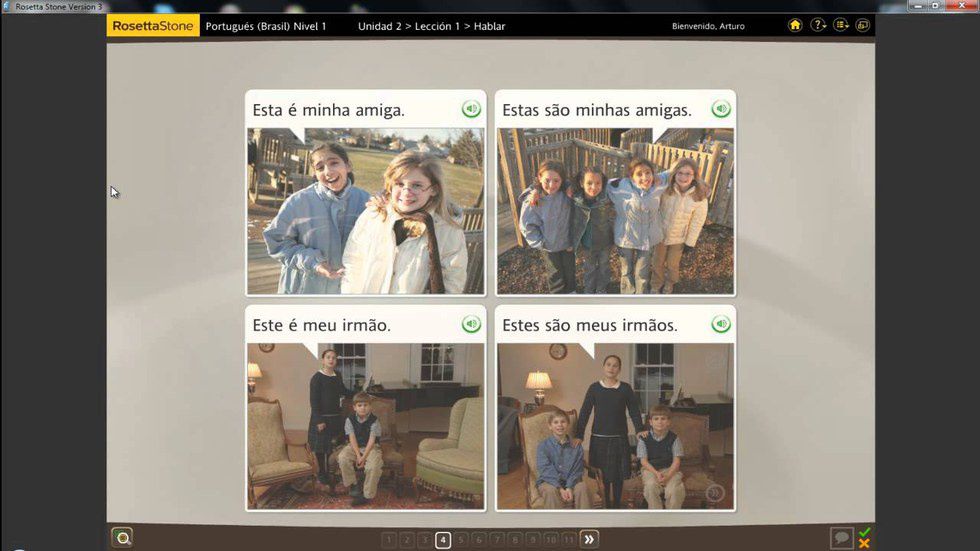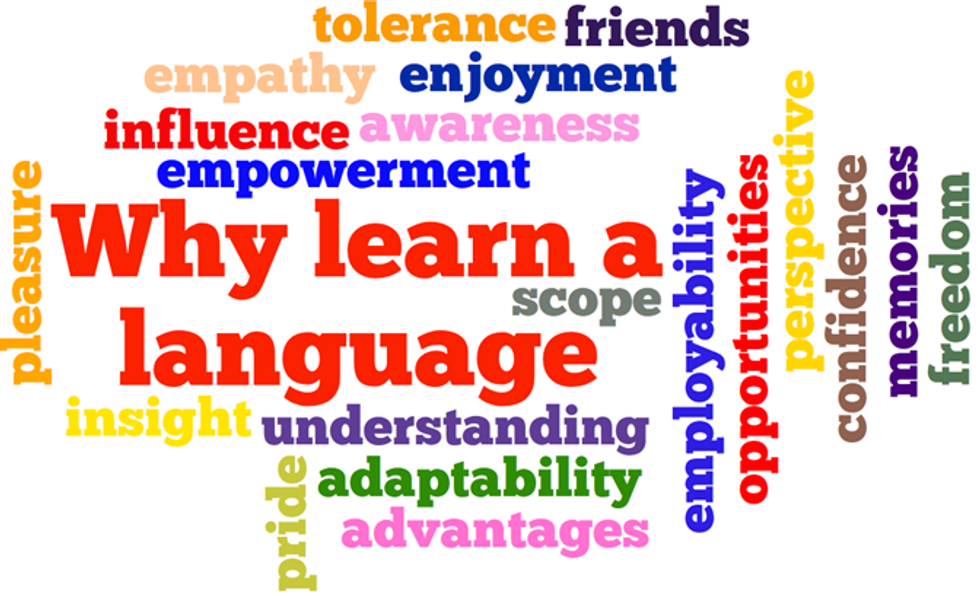Whether you plan on studying abroad, traveling to a foreign country, or simply want to pick up the basics, learning a foreign language can be a frustrating and lengthy process. It can turn out to be much more difficult than it has to be without the proper instruction and practice. If you do not have access to a formal classroom education, there are a wide variety of online resources and YouTube channels out there dedicated to teaching the language for free. They can be extremely helpful for beginners. However, it really comes down to how much time you are willing to dedicate to learning the material, and how much you practice in real life.
I have been involved in learning the Italian language for five years now, using both real world and digital resources. The most valuable out of all of them would have to be visiting Italy after having taken three college Italian classes. While I am not yet fluent, I have experienced both the academic and personal individual techniques that go into learning the language. One week in a foreign country was all it took to start thinking in the language and speaking it automatically.
Recommended for you
Comfortable expression is the goal to aim for. It starts with the memorization aspect to learn the vocabulary and grammar, and then the practical expression aspect where you can speak what you've learned in full sentences without translating in your head. Here are some of the methods to improve your learning, along with some tips for each.
1. In-Person Experience
In the United States, we are virtually required to take a foreign language up until mid-high school, sometimes in college. Academic courses can perhaps be the most effective method of pursuing the language. You have a professor who is a fluent speaker and can correct you as you go along. There is plenty of space to have conversations in class and to get the proper feedback on your performance.
If you have a friend who speaks the language, consider asking if they would occasionally have a conversation with you. In my case with Italian, it is a little bit difficult as it is not a common language. I have been limited to a few friends from class along with one or two coworkers. Every little bit helps. Learn and study with classmates and see how far you can get without using English. Imagine you have woken up in the country of your language with no choice but to communicate using what you know.
2. Online Instruction
There are lessons available online for practically every major language you can imagine. YouTube is one free source, but a quick Google search can open up your options. I've never had a problem with YouTube lessons. They're great for vocabulary and grammar and are often taught by actual language teachers.
LanguagePod101 has lessons on their site and all over YouTube. They are typically short (about three minutes) and engaging. Downloading apps on your phone are also effective and easy ways to get some new vocabulary words.
Is Rosetta Stone worth it if you have the money?
Absolutely. You do not have to buy the whole box set if you aren't trying to become fluent, but purchasing the first lesson or two can definitely provide you with quality, interactive practice to help with casual expression and travel. These lessons include reading, writing, speaking, and listening activities. You'll have to know that Rosetta Stone teaches you 100% in the language you are learning. It teaches your second language the same way that you've learned English- by showing you pictures or having you listen to speech corresponding to the pictures. It can sometimes feel like a guessing game. There is a lot of repetition, but this is what goes into the practical aspect of your language.
If you have no background in the language, you should definitely find an external source to help you get through the activities. Activities can be frustrating, as they do not explain what you're doing wrong. Regardless, I feel as though it is the digital interactive version of being dropped in a foreign country and having to figure out your way around. Of course, it is much easier over a computer.
3. Real-Life Situations
Remember that how you speak in the classroom or learn online is likely not how you will be spoken to in real world situations. Native speakers will definitely pick up on the fact that you are not fluent, and may make their sentences short and simple. If you were to ask a native speaker something along the lines of, "Dov'è l'albergo Tre Archi?" you'll hopefully be in a position where the person does know a bit of English, or where you can receive a simple answer. If not, give them a simple thank you and goodbye in their language.
Listening is just as important as speaking. Your language skills will not have much practical use if you cannot effectively understand what you hear. When you listen to music, watch a movie, or actually hear people speak, the flow of conversation can be quite fast and complex. In fact, it would be helpful to try that out to get used to how the words blend together. You can find a bunch of foreign films using Netflix. See if you can pick up a few vocabulary words or phrases. If you get to the point where you can just barely understand the topic of conversation, you're making progress.
4. Stick to the Basics
Don't feel stressed if you're going to Rome or Rio in 6 months and aren't fluent in Italian or Portuguese yet. The big city areas are where you are the most likely to find English speakers. Though, I've always found it the most polite to greet people in their native language and to get as far as I can without speaking English. It just seems more respectful to say "Buongiorno, parli Inglese?" than to just assume that they are able to speak with me in English.
Always begin and end with the formal greetings if the language specifies. In some countries, it does not matter as much. It's not really a big deal in the United States where we can approach a stranger and say "hey" instead of "hello," but it's never a bad thing to be as respectful as possible. After all, we are representing our country when we travel.
5. Be Patient and Practice
This is a new skill. Whether a skill is academic or physical, it must be practiced. Whenever you learn a new phrase or word, think about how you can use it in everyday situations. Make up sentences and scenarios in your head. Start thinking in the language. When you are fluent, you won't be translating in your head as you go along. You would actually be expressing yourself using a different language.
This is one of the most exciting things about taking on this challenge. There are thousands of languages spoken around the world today. People experience the same emotions, thoughts, and everyday communications that we do. The language is different, the culture is different, but we are humans at the end of the day. We have various ways of communicating and expressing ourselves. This is what makes our country, and our world, valuable in the human experience--our basic human connection with others.
Buona fortuna!























